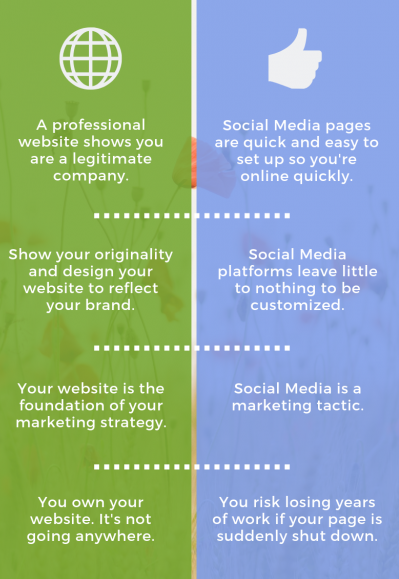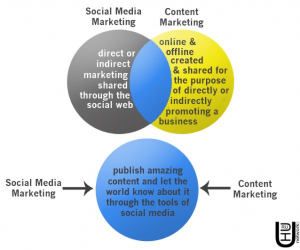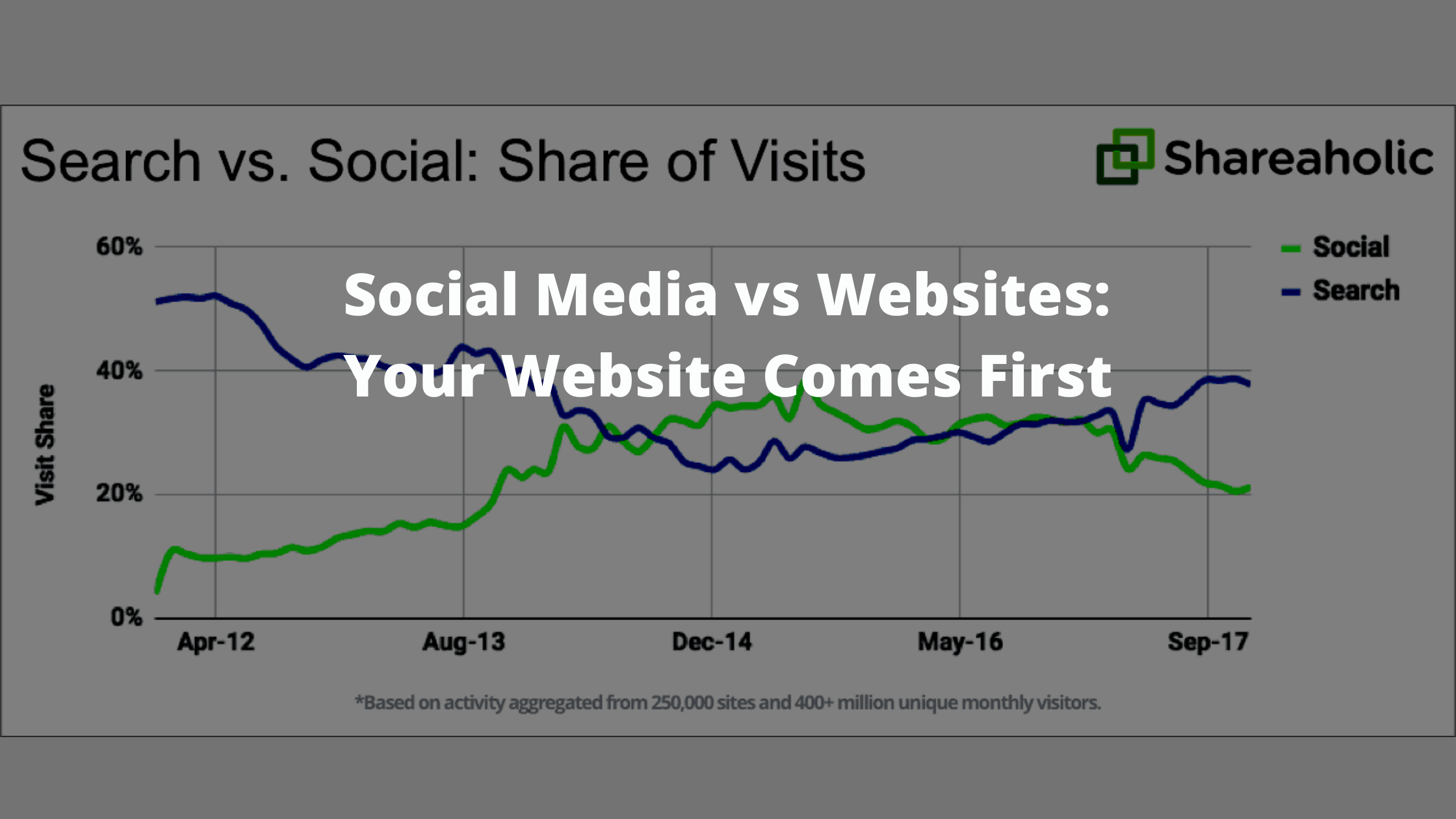In a time of growing attachment to social media, you may find yourself overwhelmed by the marketing opportunities on social media vs websites. While commitment to both search engine marketing and social media marketing may sound difficult, it ultimately saves time and energy.
Social media is effective as a website extension because it serves to deepen connections with customers. However, such a connection will not attract more customers without a website to feature in posts and interactions. Here are some reasons that social media works best in tandem with your website.
Contents
Social Media Creates Identification, Websites Create Trust

The Internet and social media were built for different purposes. When marketing your small business on social media, you exchange content for followers’ attention, and later, their enjoyment. This is the strongest feature of social media: transforming brand awareness into brand identification. Brand identification proves how your work is relevant to followers, whether through using familiar hashtags in posts or expressing what matters to your business.
In fact, your relevancy to social media users is crucial to engaging them with your content, as detailed in this article on social media strategies to modernize and improve your business. Users who identify with your brand may follow links to your website or search for it themselves. But while identification is important, it is only one of the factors in gaining more customers.
The other major factor is the amount of information you provide to answer questions browsers may have about your business. People searching for small businesses are more trusting toward websites, with a 92% majority saying that they would rather browse a business’s website than its social media for information.
Part of this appeal comes from the detail and depth of information provided on websites. While social media encourages images paired with short lines of text, a website allows for multiple pages on a topic. When people are able to read extensively about your services and background, they grow more confident in your business.

Learning about a business without traveling to another location can also relieve concerns about going in person. This is an even greater influence on customer decisions during the current pandemic. Rather than fearing the unknowns of your Covid-19 protocols, someone may resolve their questions and maintain interest after viewing your site. At any time, especially in a time of crisis, a website enhances your transparency.
Standing Out on Websites vs Social Media
In terms of how strongly your business can distinguish itself on websites vs social media, both have unique advantages. However, a website offers the most leverage in deciding what qualities to emphasize about your items or services. Though social media’s uniform design allows the swift setup of a profile, this feature makes it more difficult to showcase your individuality. A website allows for flexibility in communicating your business’s approach and formatting images and text.
Owning a web page also enables you to decide which customer reviews are shared. While social media allows users to post negative comments, you can ensure that your website’s content reflects positively on your business.
Where Your Hours Go on Social Media
Another challenge for businesses marketing on social media is the time-intensive workload. With a steady demand for interesting content in each new post, social media marketing requires constant posting and interaction. The pressure is compounded by the tendency for posts to be rapidly hidden by other content. When content planning leaves no time for work on your website, it can slow down your business’s progress overall.
Since social media followers will still likely browse your website before becoming customers, spending all of your time on social media can discourage conversion. In order to truly save time, it is crucial to prioritize both SEO and social media marketing. There are also several social media management tools that speed up the process of scheduling and posting, such as Agora Pulse, Buffer, and Hootsuite. Though the content creation process can appear like a balancing act, many of these programs allow you to automate your social media.
Building Identification on Your Social Media

So, how can you maximize the benefits of social media while still improving upon your website? While not an alternative to websites, social media can serve as a channel for encouraging people to identify with your business. You can build identification by giving followers a sense of the people within your business. For example, you may feature photos of your employees working together or create posts describing their individual backgrounds.
Additionally, social media is a great place to draw attention to your business’s core values. Your followers may gain interest in your services by noticing the views they share with you. Lastly, your social media can strengthen ties to those that interact directly with you in comments or messages. Responding thoughtfully to your followers, or even tagging those who support you often, will show them that your business has a personal mission. You can find further content guidance in this article on structuring your social media posts.
Conclusion
To describe the benefits of a website vs social media in a nutshell, websites inform potential customers and encourage conversion. They also highlight your business’s strengths by enabling a distinct design and structure. On the other hand, your social media deepens connections with current and potential customers. When you choose to harness both SEO and social media, your business can expand on all fronts.


